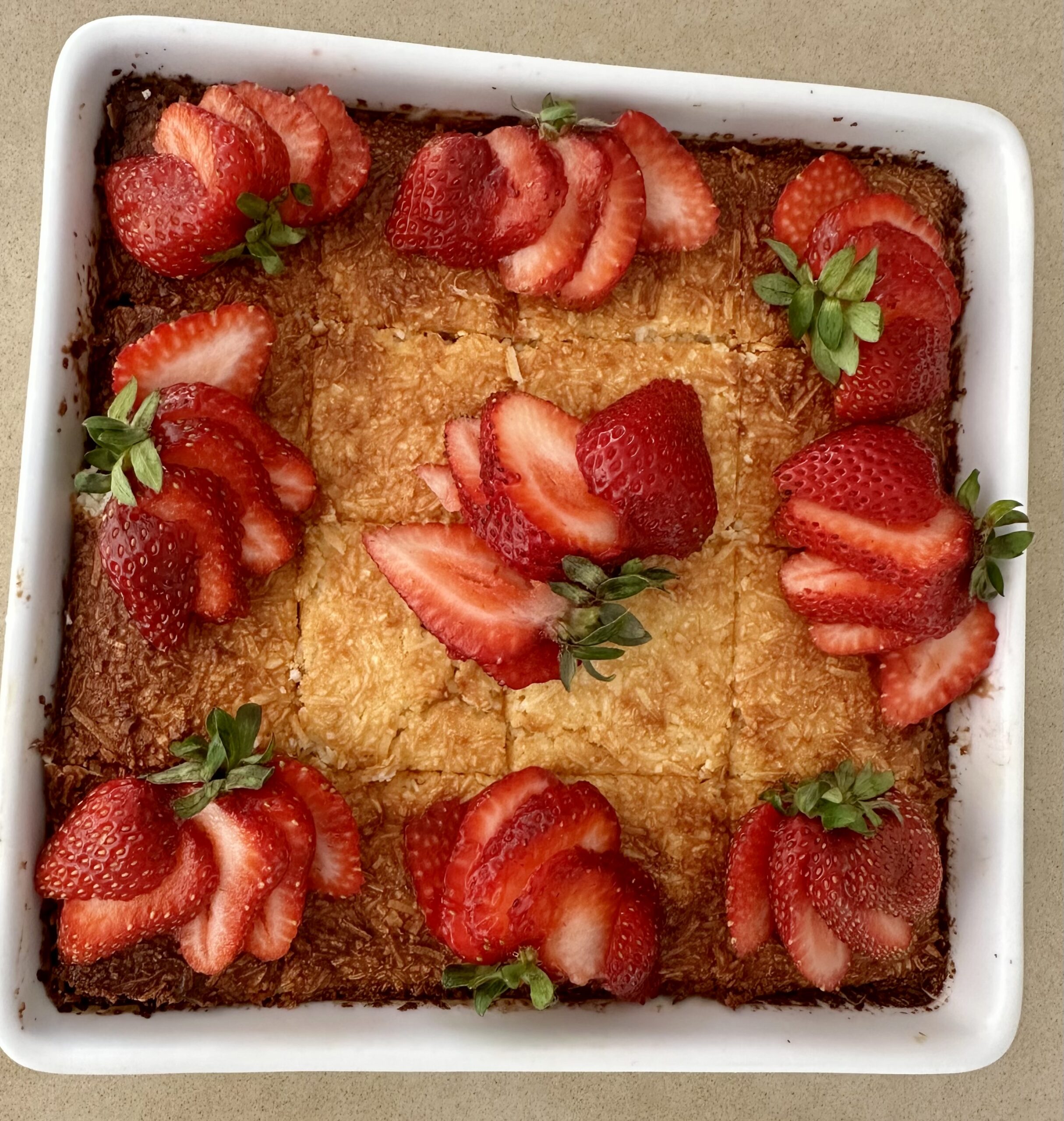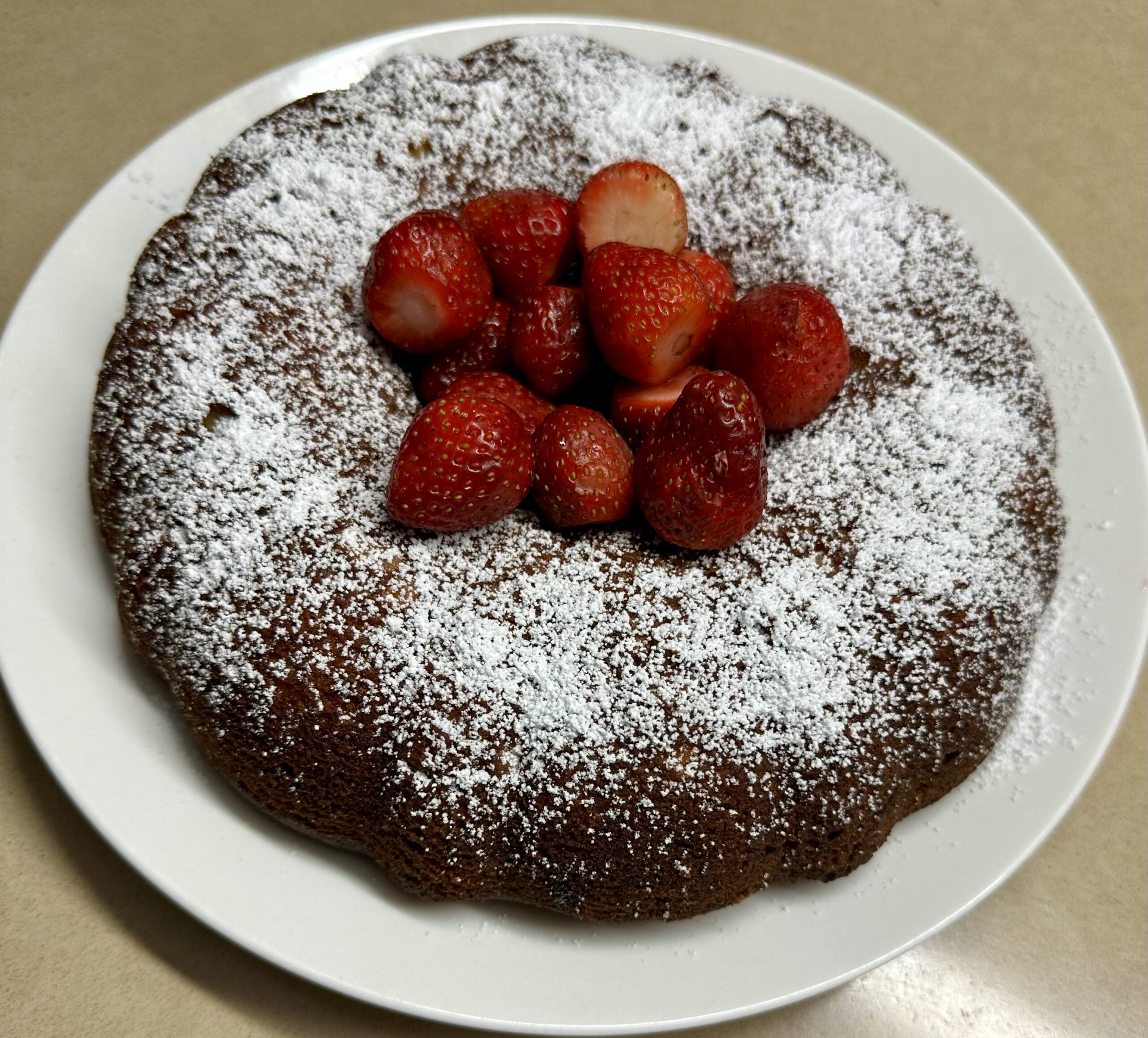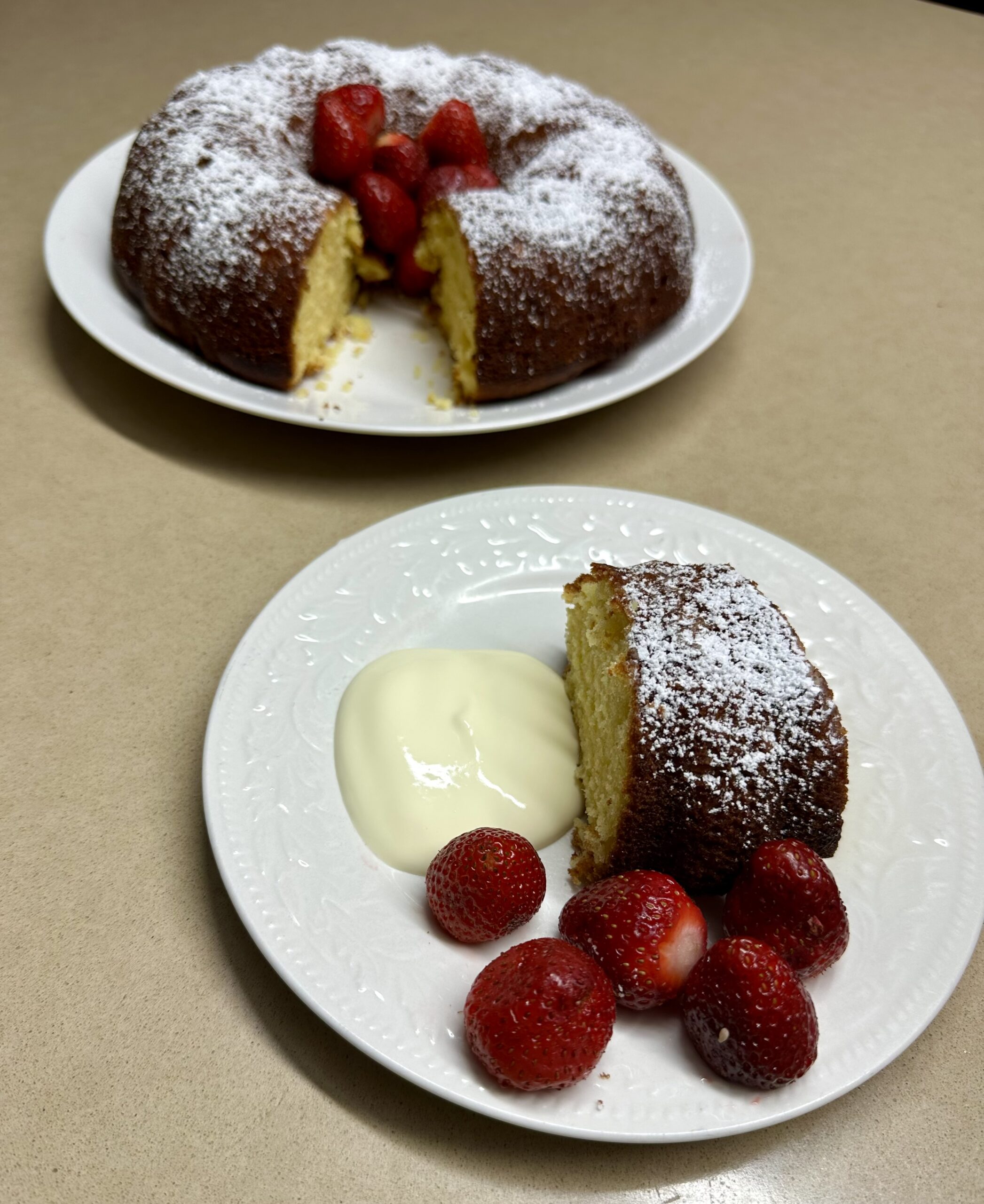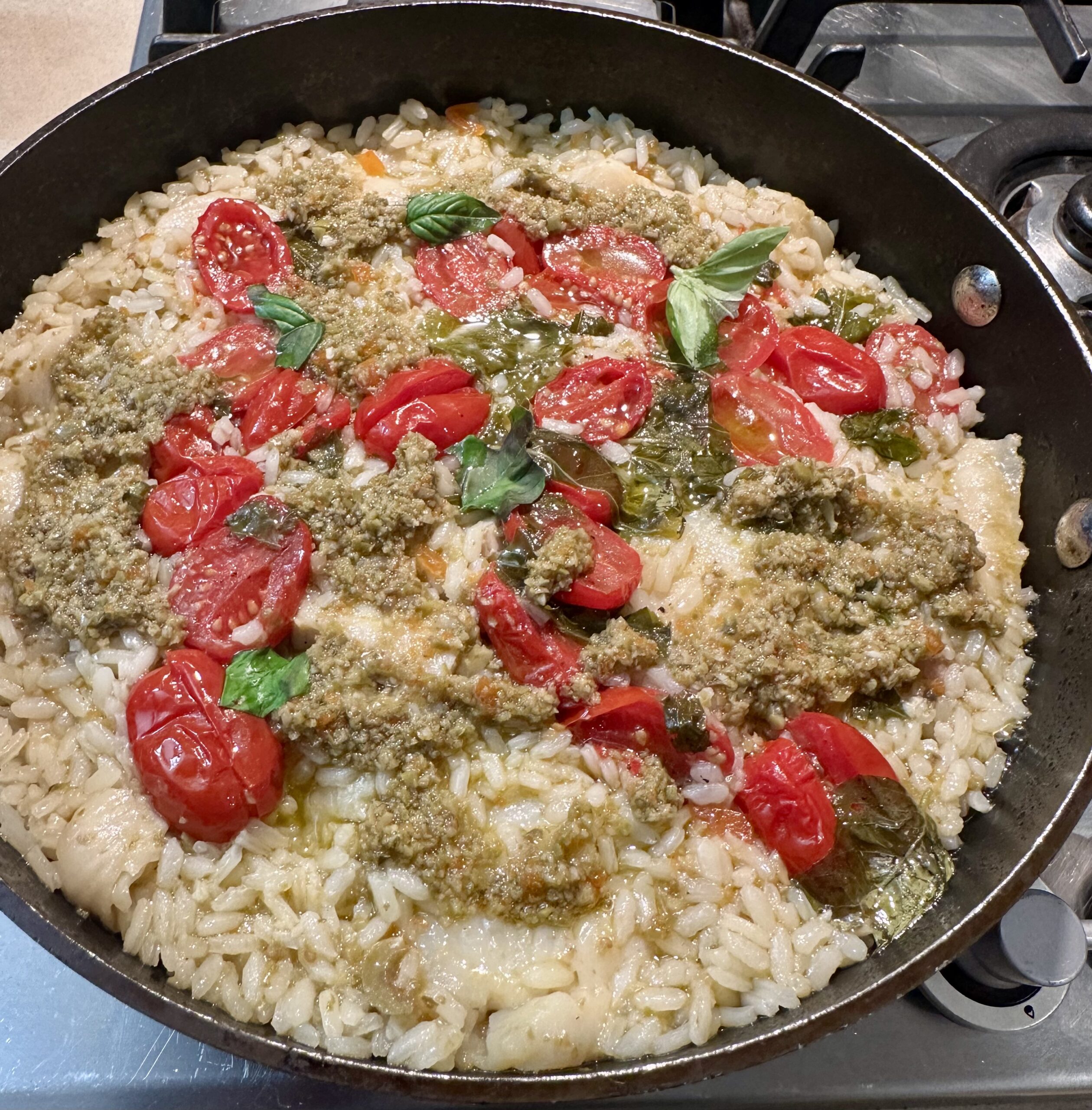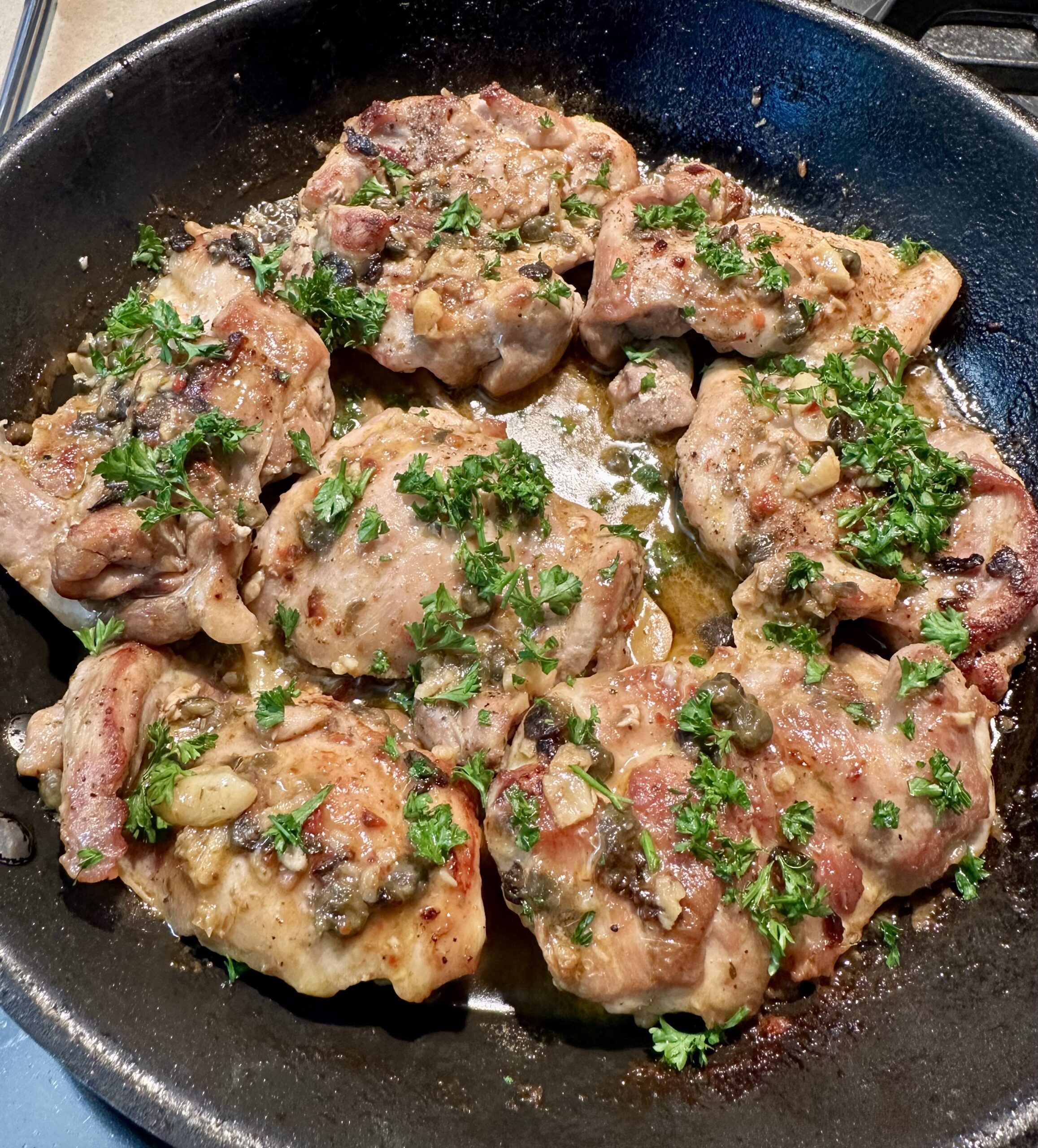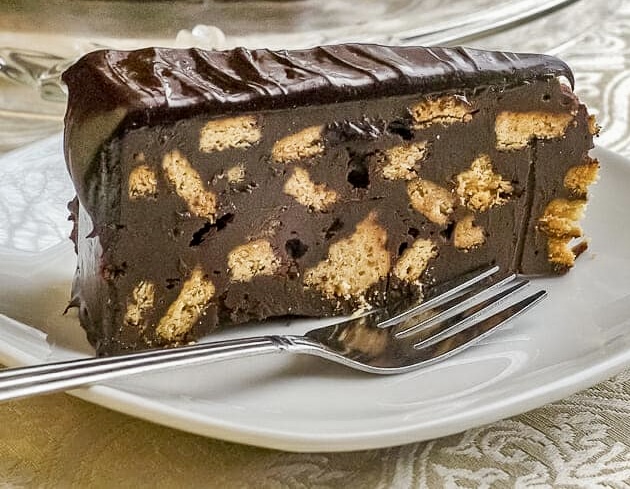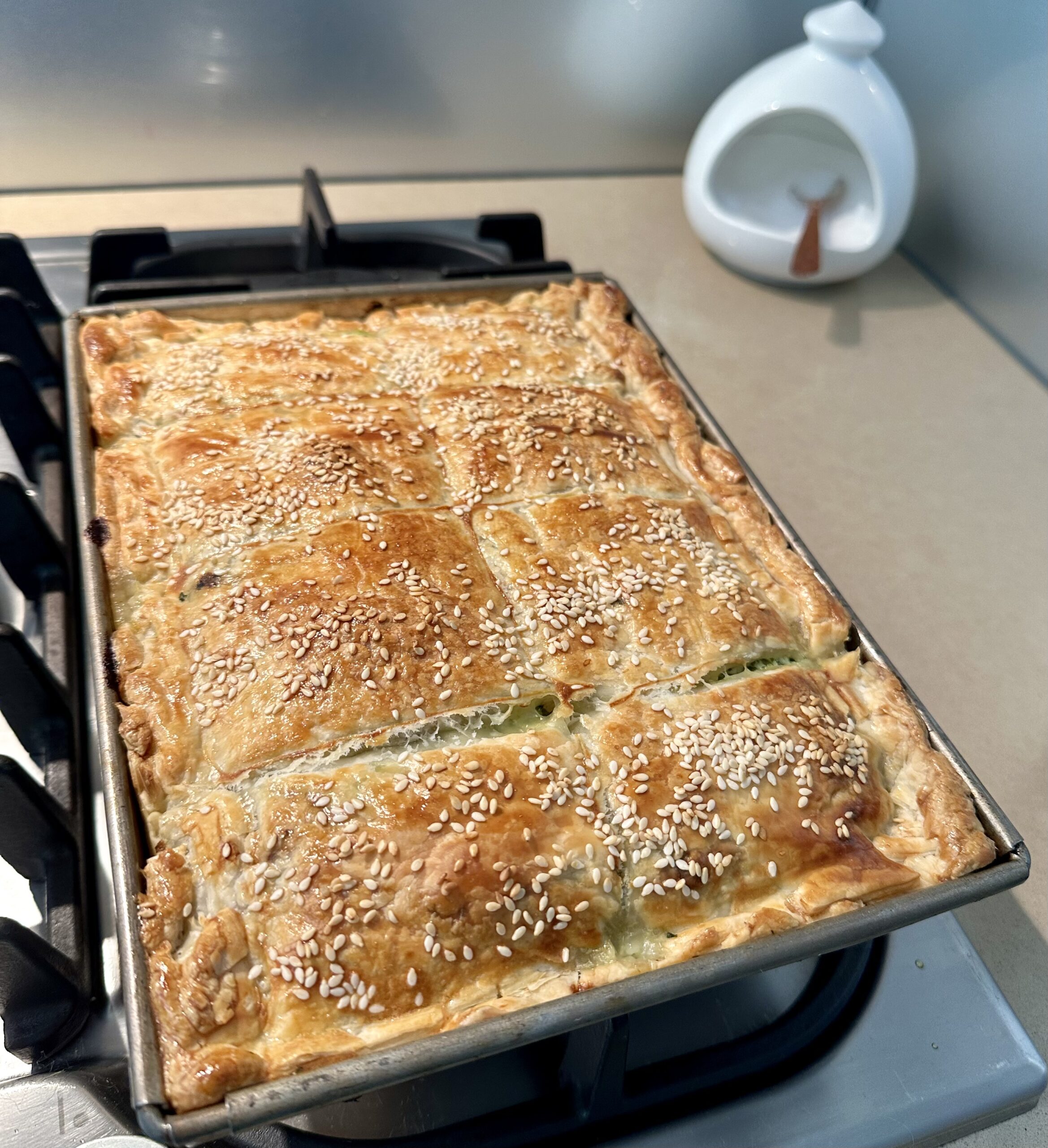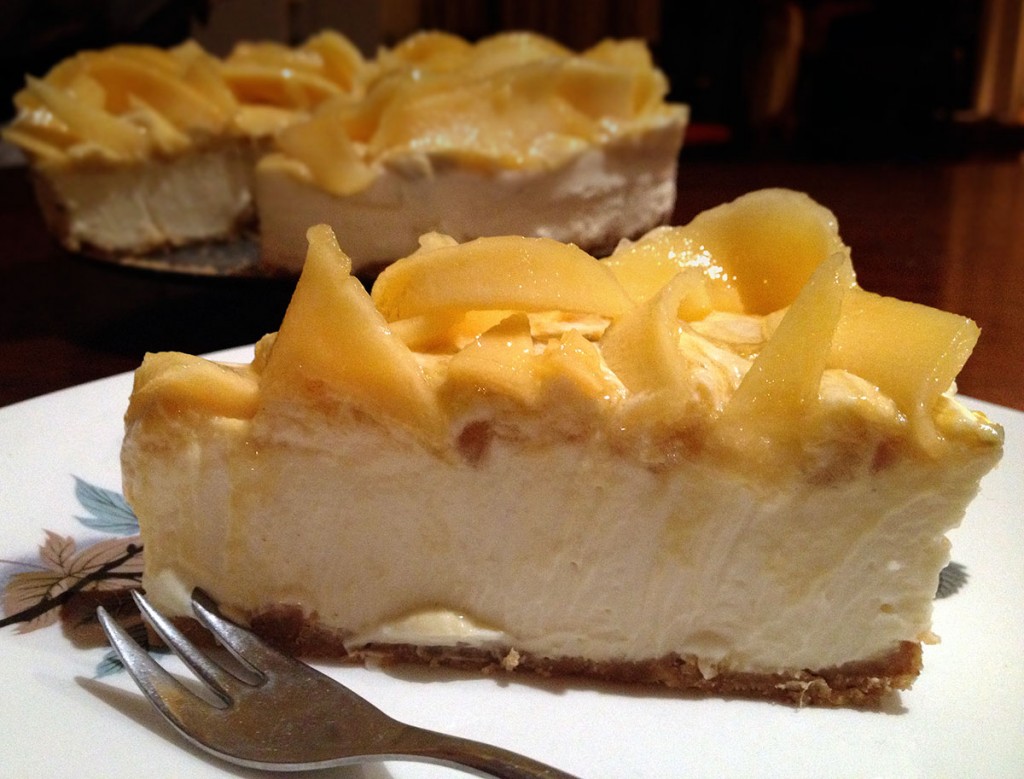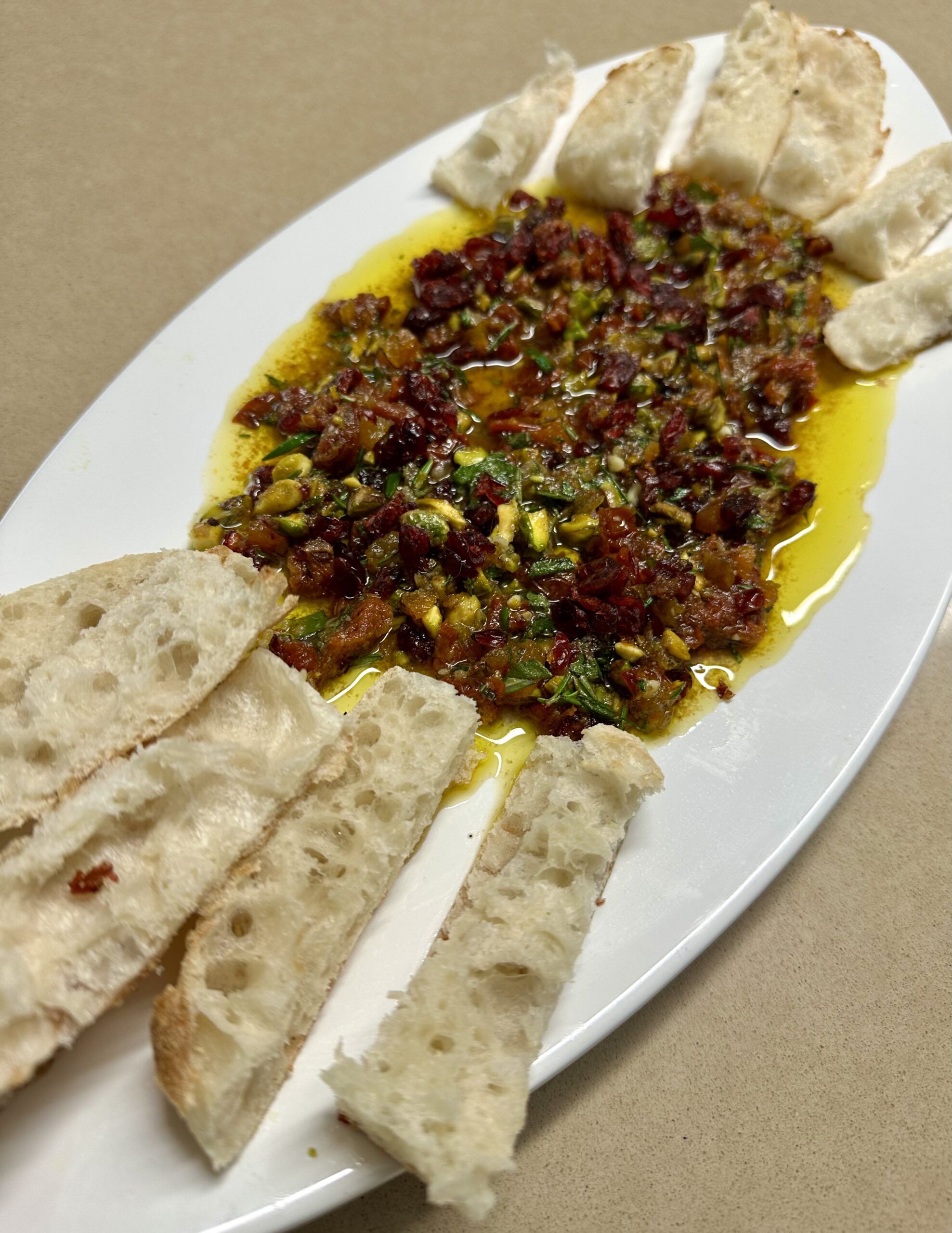This recipe was given to me by one of my father’s first cousins from the Hutchinson family who live near Barnard Castle in the north of England. Big Mary was nicknamed to distinguish her from Little Mary, wife of one of her brothers, who was much shorter.
This dessert is one I serve for special occasions when I need a wow factor. It’s always a winner. If you make it over the holiday season please comment and post a photo.
The longer you leave the Bombe in the fridge after assembling it, the more the meringues will soften into a cake-like consistency. The recipe does have a lot of sugar in it, but a thin slice with a few unsweetened berries on the side really hits the spot.

4 large egg whites
250g brown sugar
2 tsp instant coffee, dissolved in 1 tsp water
Filling:
125g caster sugar
2 Tbs water
2 Tbs water, extra
125g dark chocolate
600 ml (one pint) thick cream
To finish:
300 ml (half a pint) thick cream, extra
Fresh berries to serve
Line 3 baking sheets with foil or non-stick baking paper and draw a 20 cm diameter circle on each. Set oven to 120°C. Whip egg whites until stiff. Gradually beat in brown sugar and continue beating until sugar has dissolved and meringue is stiff and shiny, then fold in the coffee mixture.
Divide meringue evenly amongst the three baking sheets, spreading it evenly into three 20cm discs of even thickness. Bake for 1 to 1½ hours or until crisp. If your oven heats unevenly, swap the tins around halfway through cooking time. A fan-forced oven helps avoid this. Turn oven off and leave until cold.
Filling: melt chocolate and cool. Whip cream until thick and divide in two. Heat sugar and water gently until dissolved. Increase heat and cook, without stirring, swirling pan from time to time, until you have a rich caramel. Add extra cold water, being careful to protect your arm from the steam. Swirl the pan to dissolve the caramel, then cool.
Gradually beat the cooled caramel into half the whipped cream. Fold the cooled melted chocolate into the other half. Peel the paper or foil off the meringues. Place one on a large flat plate, flat side down, with a couple of blobs of whipped cream on the plate to stop it from sliding around. Spread evenly with chocolate cream. Place another meringue on top and spread with caramel cream. Place remaining meringue on top and gently press down. Refrigerate for several hours.
An hour or two before guests arrive, whip extra cream and spread around the sides of the bombe, filling in the holes to create a smooth surface and spread the rest on top. Or, as in the photo, just spread cream on top. Decorate with berries. Refrigerate until serving time. Serve the bombe in thin slices.
Note: instead of making the caramel you can use instead one can or jar or cup of dulce de leche (also known as manjar) or Nestle Caramel Top ‘n Fill and fold that into half the whipped cream for the caramel layer.
Serves 12-16
